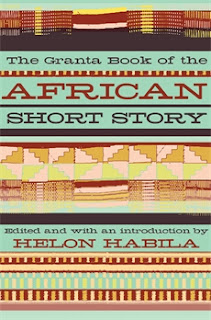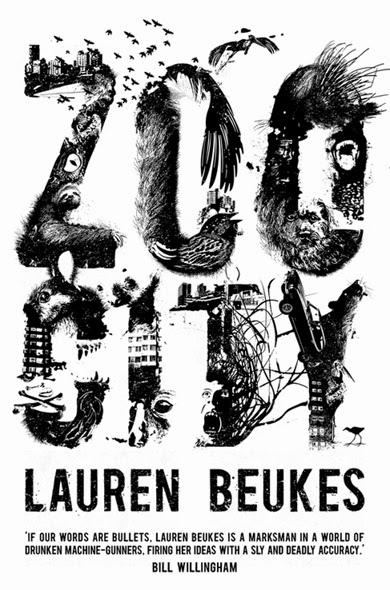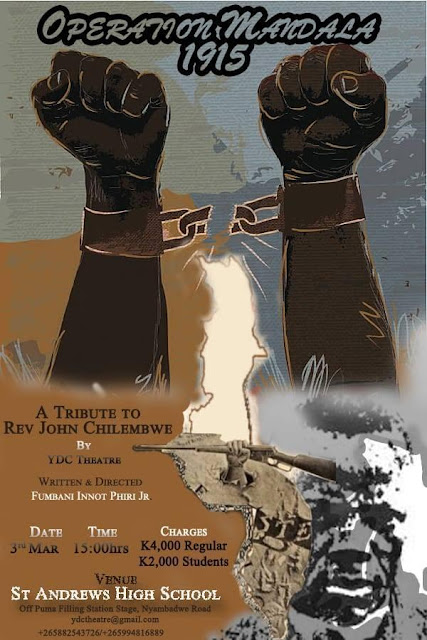My 2015 Africa Reading Challenge
A website called Kinna
Reads initiated an Africa Reading Challenge
with a simple rule: read at least 5 African books in the period of January 1,
2015 and December 31, 2015. I thought this was a great excuse to venture into a
large range of quality African books which the world is finally starting to
notice. It also fit in very conveniently with the personal challenge I had
already given myself a few years ago to read more African books. The goal of my
challenge was to begin to familiarise myself with African writing, since my
intention is to be published amongst that group. I grew up preferring western
novels for reasons I have discovered have more to do with the global industry
(availability, advertising, what type of African books get published) than
actual quality.
Without
venturing into what can and cannot be defined as an African book, I made my
choice based on accessibility (to me) and interest. I sourced
them from a variety of places, secondhand book stores in South Africa, a South
African shopping website, a flea market in Zimbabwe, a bookstore in Malawi, my
mother's garage, and book swaps with my fellow writer friends.
The sad
thing about this list is that recommending these books only takes them so far.
There are still big problems with availability, especially in countries which
do not yet have an online payment system - most likely to be African countries!
There is no single source of African books, but they are around for those who
wish to find them.
Here are
my reviews in the order I read them - they are just my opinions, I encourage
you to read the books and decide for yourself.
Purple Hibiscus (Nigeria)
In the past, one of my excuses for avoiding African books is that they
tended to be depressing at their core. One bad thing after another happens to a
more or less passive protagonist, and they tended to not overcome their difficulties at all. I'm afraid
Purple Hibiscus fit that mold. The story follows a young Nigerian girl who
grows up as one of two siblings in a home with a strictly religious father who
abuses her mother. External political circumstances result in the girl and her
brother being sent to live in a poorer household with her father's sister and
their grandfather - who their father considers to be a "heathen" as
he still practices African religion. The girl has to reconcile adolescence, her
differences with other children whose parents raise them differently, and a
forbidden crush on a young pastor.
The
story was not hugely about character arch (although there was
some character growth), but more an analysis of morality, society dynamics
in Nigeria, poverty and wealth, and a few other themes, all seen through the
lens of a girl who, for the most part, did not have the power to change them.
It is more reality-based than the fantasy books I usually hunt for like a
bloodhound, so I'm aware that my assessment of it is biased. My favourite
fantastical idea that the young protagonist can change the world was
conspicuously absent for me. It was nonetheless an interesting read, which
I recommend to anyone whose taste leans more towards books that hold a mirror
up to the status quo, showing the good, bad and ugly alike.
A comment about the cover - although I'm here to review the
story, the chosen cover was very distracting. From the research I have done in
the publishing industry I know that the author rarely has control over the
cover, so I fault the publishers. The girl on the cover is shown to be of
light, possibly Caucasian skin tone, but there is no girl of
that ethnicity in the entire book. The main character's racial
descriptions are very clear, down to vivid descriptions of her natural African hair
- this is not an ambiguous black Hermione situation. The reason I'm so emotional about this is
that I wonder why they were trying to mislead readers. Was there a presumption
that fewer people would buy a book with a black female on the cover? That sends
chills...
Half of a Yellow Sun (Nigeria)
This
book used the "mystery title" hook for me - I drove forward with the
question in the back of my mind - what does Half of a Yellow Sun mean? I won't
spoil it here, but will assure you that it does answer the question.
It was
another book which deals with depressing topics (although admittedly not to the
extent Hibiscus does) with the
second half immersed in war, and some quite vivid violent
imagery which stayed with my imagination long after I put the book down. While
I would much rather absorb happier things like I have mentioned, the book
taught me a great deal about a war which I had no idea happened (due to the
near absence of African history in my entire primary and secondary school
curriculum). I even had to do further research to find out to my surprise that
it wasn't fictional.
In this
book Adichie dealt with relationship dynamics better than Purple Hibiscus, addressing how an
intercultural/interracial relationship copes, how infidelity impacts a
relationship, how a drastic change in lifestyle from having plenty to having
nothing impacts different relationships, and other fascinating scenarios.
One of
the protagonists has a non-identical twin sister like me, which I haven't seen
explored much - writers are usually more fascinated with the "what if I
could swap places with an identical twin" trope. Instead Adichie wrote
their relationship quite pragmatically, as they realistically have different
personalities and tastes. The author's pragmatism extended to all the
characters' relationships, writing them in a way that made them feel like fully
fleshed people.
The
publishers finally created a cover representing the true ethnicity of the
character, but I noticed for the next Adichie book Americanah they pretty much
redid the cover, as if it was a continuation of a series instead of an
independent book. The version I read was published in Kenya so you won't see
that twin cover of Half of a Yellow Sun here (Google was invented for this
precise purpose however).
Americanah (Nigeria)
At last
my perseverance with Adichie's books paid off. This book is not just
my favourite of her books, it isn't just my favourite African book, it's
one of my favourite books ever. It made me realise how important representation
truly is. For the first time, I encountered a character who, like me; was an
educated black African female; who grew up believing her hair was out of place;
and lived in a foreign country which firmly differentiated her own blackness
with the local blackness (breaking initial assumption that the black experience
is the same everywhere - it's not).
The
story begins with an introduction to Ifemelu, a young Nigerian woman studying
in America at Princeton, but has to leave town just to get her hair braided
because there are no black hairdressers in the predominantly white town. The
salon is used as a base scene, from which the various aspects of Ifemelu's life
are explored through flashbacks; her observations about
race, nationality and immigrant life in the African diaspora, the
life changing decision she has made about moving from America back to
Nigeria, and her love life in all of its complexity. Her frank observations
about the world around her are eye-opening and immediately relatable, so that
the story feels realistic enough to seem like a documentary on the human
experience through a black female perspective.
One of
the things I love about this story is that it actually shows black love instead
of domestic abuse or some other messed up situation. There are challenges in
the relationships portrayed, but not because one of them is a Scary Black Man
or a Conniving Black Woman, which are too often the go-to characters in African
relationship plot lines. Instead through her story, Adichie explored the impact
of distance, miscommunication, cultural traditions, and careers on
relationships.
Rumours have said there will be a movie based on this story and I just can't wait.
Smouldering Charcoal (Malawi)
I was
lucky enough not to have studied that book in secondary school like my fellow
writers. That means I picked it up by choice, when I was arguably at the right
age, maturity and level of political consciousness to appreciate and understand
it. I think it might have bored me if I had read it as a teenager, unable to
appreciate what it meant for my direct history.
The book
is set in post-colonial, pre-democratic Malawi. The viewpoint takes two
perspectives, that of a poor character, and that of a well-to-do character.
They have two different experiences of the regime, but what they have in common
is a sense of restricted freedom, and the ever present possibility of their
lives being forcibly changed for the worse in a single moment.
When I finished reading it, I suddenly realised how brave this book
had to be, because it was published when Kamuzu Banda was still in power. It was loosely coded, with no mention of what
country it is based in, nor the name of the Leader or his political Party.
However, anyone with any knowledge of Malawian history will know "The
Leader" is Kamuzu Banda, and "The Party" is the Malawi Congress
Party. The coding was not a marketing gimmick like
I initially thought, it was the author's survival technique. I am not
even certain if the author used their own name or a pseudonym, because I
heard of many Malawian citizens who had to change their names in order to
escape harsh prosecution for opposing the one party government.
Smouldering
Charcoal was history in the form which I prefer to consume it - through the
eyes of characters in a story. I was born in the last few years of Kamuzu's
life, so was never really aware of the oppressiveness, but I got to learn about
what life was really like in my parent's time. It was too recent for my history
teachers to cover.
Africa 39 (Pan-African)
This
concept behind this anthology is not theme, but rather a collection of 39 of
Africa's emerging writers from Sub-Saharan Africa. Among the themes which the
authors are free to explore, there are stories about the key historical figures
on both the African and European side of colonialism; a friendship between two
different people who have heartbreak in common; a futuristic society where some
of the population is kept in the dark about what is really happening; the
dilemmas of a white Nigerian who does not fit into either of the two worlds he
is from; and a metaphorical piece about Mama Africa who is dying and how her
children (who represent various groups of people of African heritage) respond
to this sombre news. The stories explore many different avenues, the future,
the past, the present, and the mind itself.
The Granta Book of the African Short Story (Pan-African)
This
anthology is grounded primarily in realism, with stories depicting segments of
lives lived around the continent. The exception was a story named Faeries of
the Nile, which dealt more with an abused woman's response to mystical
creatures which she is unsure even exist.
At times
the stories are violent, brutal, depressing and often shows the
ugliest sides of life and humanity. Honestly, there was too little hope in
these stories for me to enjoy them very much. I am glad I read the book because
I learnt about different places and cultures as well as different styles of
writing, but ultimately it was not my cup of tea. A story which I did like, although it took the same tone of staring into the face of society's ugliness, was "Preference Nationale". It portrayed a francophone African's difficulty earning a decent life in France. The irony struck a cord - an African coming to the country which had historically colonised her own, changing her identity down to the language, yet was rejected by embedded xenophobia and racism.
Omenana (Pan-African)
Those
with keen eyes may notice that my name is in there... I will try and be as
unbiased as possible! These series of anthologies are produced in Nigeria, but
Pan-African in content. They are beautifully illustrated collections of
speculative fiction stories - in other words science-fiction, fantasy, magical
realism, horror, any genre which explores that which is beyond what we perceive
as possible. Many stories build on the existing superstitions and
mystical beliefs within the hugely diverse African mythos, and blend them into
the modern world. This juxtaposition between the familiar and strange make for
some memorable tales which capture the imagination.
There
are stories of a massage client with disturbing but seductive abilities; a jinn
man who is distanced from the love of his life because of his body's tendency
to burn boiling hot; an epic short story which traces a mixed race bloodline
from the past to the present to the future; and an 18th century African slave
imprisoned in a French dungeon struggling to use his remaining energy and magic
to create an invention which is destined to change the world.
The best thing about the Omenana series is that they are
available right now, for free, downloadable here! They also
showcase visual art, both on their covers and as stand alone pieces next to the
stories. If you're an African spec-fic writer or an artist, I'd encourage you to take a look and submit your material to them.
Imagine Africa 500 (Pan-African)
This is a book I am still reading, and feel a little bad
about promoting it since it is not yet widely available! But for sure it is one
to look out for soon. This is a matter of pride because it is the first science
fiction anthology produced by a Malawian, including stories by five Malawian
writers I personally know. It is the direct product of the Imagine
Africa 500 workshop which I have blogged
about.
The
stories in the anthology dream up different versions of the future, some
dystopian, post-apocalyptic, others hopeful and fantastical. Some predict we
will go back to basics, rejecting the technology and economic systems of the
present day to embrace sorcery, swords and kingdoms. Others warn us that the
future may make us pure survivalists at the complete mercy of nature, having
ignored it for far too long. Others paint a future with many of the same
problems of economically unequal societies, of education only favouring the
wealthy, and large groups of people trapped in a hopeless future which is
reinforced by authority. The best thing about science fiction stories is that
they can show us on the vivid plane of the imagination, where we could end up,
and where we should avoid ending up. We need both the positive and negative
stories to guide us, and this anthology has a delicious blend of both.
(For an in depth review of one of the stories written by Malawian Muthi Nhlema, visit Joanna Wood's website Zwelethemba: 'Land of Hope')
End Note
It
doesn’t have to end in 2015 - you can challenge yourself next year! I certainly
have not finished my personal African book quest, especially now that sci-fi and fantasy are becoming easier to find.
After African books, I want to read books by other non-western
writers, like Asian, South American, middle eastern and so on. I have become
more open-minded about where great stories can come from - they are not always
the ones which shout the loudest. Let me know if you hear of a great book from an unusual source!
Honourable Mention:
Zoo City (South Africa), which I read in 2014 and already reviewed here.
-----------------------------------------------------------------
Dishonourable Mention!
Perhaps
there was a time when I had enough willful ignorance to finish a book like
this, but I actually had to put this one down. It is clearly Africa through the
white male gaze, an unapologetic macho adventure through deepest
"darkest" Africa, conquering it one adrenelin gun fight at a time. I
hated how a third of the way through, there was still no significant African
character with their own motivations that weren't sneaky or bloodthirsty. I
skipped through and found that the only black female was described as "the
biggest ugliest woman Dirk had ever seen" (paraphrasing). I put it down
when I reached a scene where 3 westerners were gleefully gunning down a crew of
Africans - all justified of course, they attacked first, and they clearly had
evil intentions. But the fact that the Africans were split between "those
you gun down" and "those you rescue from their African-ness"
totally repulsed me. Those have watched the movie adaptation may notice that
the racism and sexism has been vastly played down for a diverse movie audience. As a matter of fact I personally enjoyed the film before I had the displeasure of reading the source material.
Of
course it is not Cussler's responsibility to represent a variety of dimensions
of Africa which reflect a dignified Africa. He is good at appealing to the audience
he aims for. It is our duty as African writers to tell better stories about
ourselves.
















Comments
Post a Comment